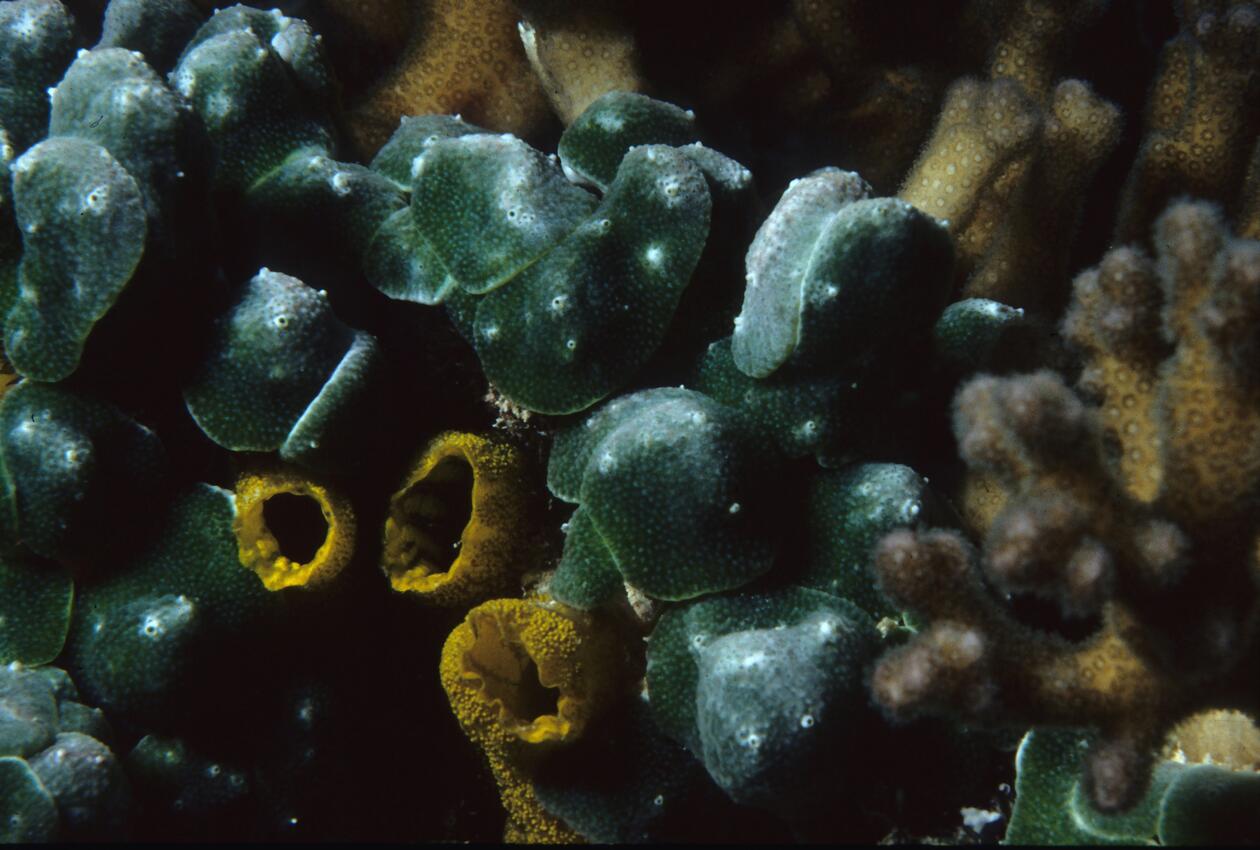Exploring the depths: knowns, unknowns, and way forward in deep-sea research
We welcome you to this event showcasing deep-sea research in Bergen and beyond, both from veteran researchers and Early Career Ocean Professionals. The event will be hybrid and will be split in two parts. Registration is now open!
Main content
What do we know about the deep-sea? Scientists estimate that two thirds of around one million ocean species are yet to be discovered, while only a quarter of the seabed floor has been mapped. These numbers are even lower in the deep-sea, a region of dark abyssal plains, hydrothermal vents, fascinating creatures, and hydrostatic pressures exceeding 500 times those at sea-level. The deep-sea is not only a place of wonder and exploration for marine scientists, but also an area of interests for nation states and commercial actors. In this hybrid all-day event, we explore some of the cutting-edge deep-sea research that is being done at the University of Bergen, including projects on deep-sea biology, the geology of mid-oceanic ridges, deep-sea mining, or ocean science diplomacy. During the panel sessions, we discuss pressing questions on knowledge-creation and knowledge use, reflecting on the societal impact and relevance of deep-sea research. Join the conversation!
The main topics of discussion for the two panels are:
- Research gaps in deep-sea research (what do we still need to know and why);
- The role and use of deep-sea research in society (how is/can deep-sea research be used for the betterment of society and the environment);
- The role of interdisciplinarity in filling out research gaps and going forward (what interdisciplinary collaborations are needed and for what);
- What types of knowledge is included in deep sea research, what is excluded and what are the implications of that?
- What role should deep sea researchers have in decision-making?
This event is part of a larger, one-week long event called the “After Development Lectures”, which is now in its fourth year, and which is co-organized by Eduard Nedelciu annually with the University of Clermont-Auvergne in France.
PROGRAMME
9:15-9:30 Welcome & coffee
9:30-9:45 Introduction to the day
- Eduard Nedelciu, System Dynamics Group, Postdoctoral fellow in the SEAS programme at UiB
9:45-10:45 Round of presentations
Speakers:
- Peter M. Haugan, Policy Director at the Institute of Marine Research and Professor at the Geophysical Institute, UiB: “Sustainability of deep sea mining with emphasis on the case of Norway”
- Pedro A. Ribeiro, Deputy Director at the Centre for Deep Sea Research and Researcher at the Department of Biological Sciences, UiB: “The need for an improved knowledge base to support decisions on seabed mineral exploration in Norway”
- Lise Øvreås, Professor at the Department of Biological Sciences, UiB: “Deep sea mining; From research through policy for a sustainable future?”
10:45-11:00 A 15-minute coffee break
11:00-12:00 Panel discussion
- The three speakers gather for a panel discussion moderated by Eduard Nedelciu
12:00-13:30 Lunch Break
13:30-14:45 Round of presentations
Speakers – all postdoctoral fellows in the SEAS programme at UiB:
- Morgane Le Saout, Department of Earth Sciences, SEAS UiB: “Variability of tectonic, magmatic and hydrothermal activity along ultra-slow spreading ridge; example of the Mohns Ridge”
- João Bettencourt, Geophysical Institute and SEAS postdoctoral fellow at UiB: “The territorial logic of the Clarion-Clipperton Zone Regional Environmental Plan”
- Aistė Klimašauskaitė, Centre for the Study of Sciences and the Humanities, SEAS UiB: “Deep-sea governance research: where to next?”
14:45-15:00 A 15-minute coffee break
15:00-16:00 Panel discussion
- The four SEAS fellows in discussion moderated by Professor Edvard Hviding, Department of Social Anthropology, UiB
16:00-16:10 Concluding remarks
- Sverre Ole Drønen, Section for International Cooperation, Division of Research and Innovation, UiB
